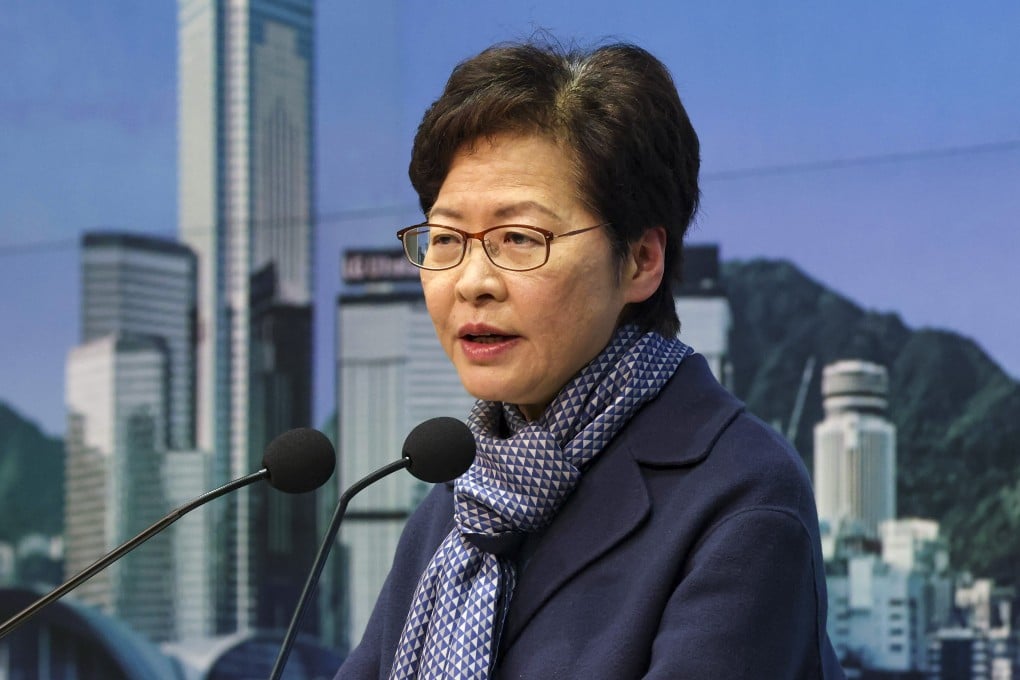Advertisement
Will Beijing extend Carrie Lam’s term? Analysts lay out possible ‘firsts’ for Hong Kong if Covid-19 still raging past election day
- The government has postponed the leadership race by six weeks to let the chief executive focus on bringing the pandemic under control
- But if that goal proves elusive, Hong Kong could push the polling date back even further or the central government could step in to extend the leader’s term
Reading Time:4 minutes
Why you can trust SCMP
30

The decision by Hong Kong’s leader to postpone next month’s chief executive race to focus on combating the worsening Covid-19 crisis could lead to a number of political “firsts” for the city, analysts have said.
Beijing could simply extend the term of Carrie Lam Cheng Yuet-ngor if the rising wave of infections had not been brought under control by May 8, the new date for the election previously scheduled for March 27, they noted.
Lam could also move the poll even further back, as the revised schedule still afforded enough days between the election and the end of her term on June 30 to comply with requirements laid down in the city’s Basic Law mini-constitution. Another option is for a leader to be decided based on “consultation”, which the law also permits.
Advertisement
Extending Lam’s term would bring its own set of challenges, noted Lau Siu-kai, vice-president of the semi-official think tank the Chinese Association of Hong Kong and Macau Studies. Allowing her to remain in office longer than the five years prescribed by law would deliver a blow to the city’s stability and community solidarity, due to the “complicated constitutional and political issues” that would need to be resolved, he said.
Lam’s decision, which came after Chinese President Xi Jinping stated the pandemic should be the government’s “overriding priority”, was generally welcomed by the city’s politicians and business leaders.
Advertisement
Advertisement
Select Voice
Select Speed
1.00x
